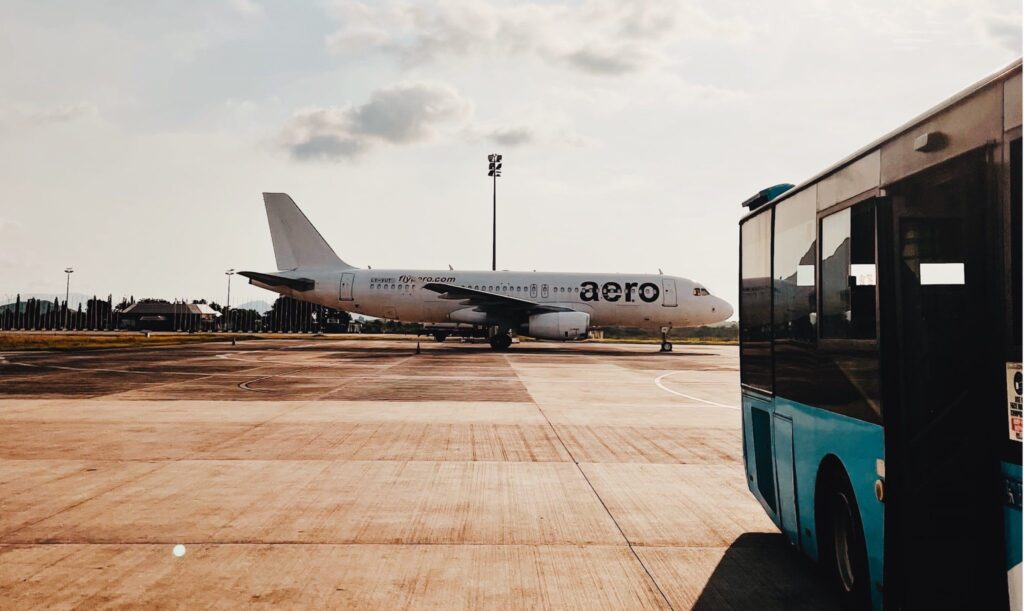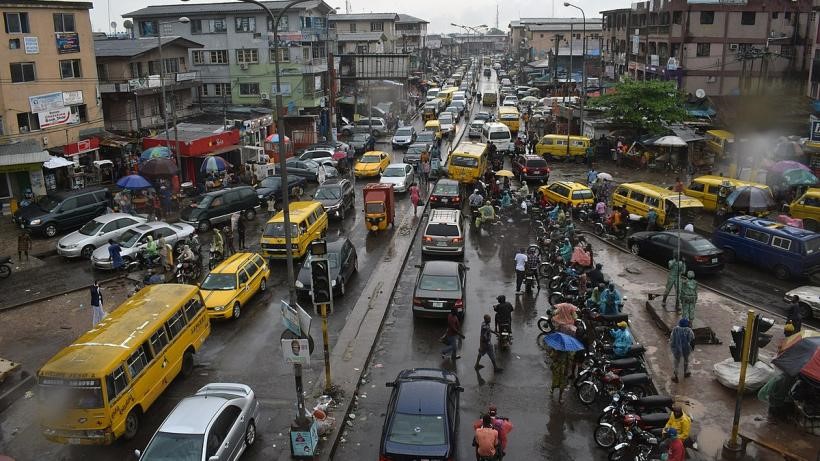Transportation is a critical aspect of daily life and economic activity in Nigeria. As the most populous country in Africa, Nigeria faces significant challenges in providing efficient and accessible transportation options to its citizens. From the notorious Lagos traffic to the expansion of domestic flights, the country’s transportation landscape is a complex tapestry of opportunities and challenges. In this article, we will explore the intricacies of navigating transportation in Nigeria, focusing on the bustling city of Lagos and the evolution of domestic air travel.
Nigeria, often referred to as the “Giant of Africa,” is a nation of immense diversity and complexity. It is a land of contrasting landscapes, from the bustling metropolis of Lagos to the serene beauty of its countryside. However, this diversity is equally reflected in the nation’s transportation infrastructure, a web of challenges and opportunities.
Lagos, Nigeria’s largest city, is renowned for its traffic congestion. The city’s population has skyrocketed over the years, and with the rapid urbanisation, traffic jams have become a daily struggle for its residents. The infamous “go-slow” in Lagos is a testament to the complexities of transportation management in a megacity.
The Lagos traffic problem can be attributed to several factors, including:
- Overpopulation: Lagos is home to over 20 million people, making it one of the most densely populated cities in Africa.
- Inadequate Infrastructure: The road network in Lagos has struggled to keep up with the population growth, resulting in congestion.
- Informal Transportation: The prevalence of informal transportation, such as “okadas” (motorcycle taxis) and “kekes” (auto-rickshaws), adds to the traffic woes.
- Poor Urban Planning: Inadequate urban planning has led to the construction of unplanned settlements and the absence of efficient public transportation systems.
- Economic Activity: Lagos is Nigeria’s economic hub, drawing businesses and workers from across the country. The resulting economic activity adds to the traffic congestion.
Efforts are underway to address Lagos’ traffic issues, including the expansion of the road network, the development of a Bus Rapid Transit (BRT) system, and investments in waterway transportation. The Lagos State government has also sought to regulate informal transportation, such as okadas, to mitigate traffic.

In a country as vast as Nigeria, air travel plays a vital role in connecting distant regions and cities. It is not only a means of transportation but also a facilitator of economic activity, trade, and tourism. Domestic flights are essential for linking Nigeria’s diverse landscapes and cultures.
Nigeria’s aviation sector faces its own set of challenges:
- Infrastructure Deficits: Many airports in Nigeria lack modern facilities and adequate maintenance.
- Safety Concerns: Safety and security issues have plagued the aviation sector. Incidents of near misses and runway incursions have raised concerns.
- High Ticket Prices: Domestic flight tickets are often expensive, limiting accessibility for many Nigerians.
- Airline Competition: The aviation sector has faced turbulence, with several airlines experiencing financial difficulties and even bankruptcy.
In recent years, the Nigerian government has initiated reforms to improve the aviation sector. The construction and renovation of airports have been a focal point, as well as efforts to enhance safety standards. Additionally, private sector participation and investment in airlines and airport infrastructure have contributed to improvements in the industry.
Nigeria’s vast size and varying terrains pose unique challenges to cross-country transportation. The country spans over 923,000 square kilometres, and connecting regions efficiently is a complex task. Many areas, particularly in the north, have limited transportation infrastructure.
Insecurity, including incidents of kidnapping and attacks on travellers, presents a significant obstacle to road transportation in certain regions of Nigeria. These concerns have prompted some travellers to opt for domestic flights where possible, as aviation may be perceived as a safer mode of transport.
The digital age has brought innovations that are transforming transportation in Nigeria. Ride-sharing apps and navigation tools have become increasingly popular in urban centres, providing real-time information on traffic conditions and alternative routes. These apps have helped commuters better navigate the challenges of Lagos traffic.
The aviation sector has also embraced technology, with e-ticketing and online booking platforms making it easier for passengers to plan their journeys and reduce the hassle of booking in person. The ease of booking flights online has improved access to air travel.
Despite the challenges, Nigeria’s transportation landscape is poised for transformation. Initiatives for infrastructure development, public transportation, and aviation reforms are steps in the right direction. However, several key considerations are essential for charting a more accessible and efficient future:
A well-integrated multimodal transportation system that connects road, rail, air, and waterways is crucial. This approach will enhance accessibility, reduce congestion, and promote economic activity across regions.
Continued investment in transportation infrastructure is fundamental. This includes the expansion and maintenance of roads, the modernisation of airports, and the development of public transportation systems.
Addressing safety and security concerns in the aviation sector is paramount. Ensuring passenger safety and restoring confidence in air travel is vital for the sector’s growth.

As Nigeria advances in transportation, sustainability and environmental impacts must also be considered. The adoption of eco-friendly technologies, such as electric buses, and efforts to reduce emissions from air travel are essential.
Navigating transportation in Nigeria is a multifaceted challenge, from the congested streets of Lagos to the vast expanse of the country’s diverse regions. While it is not without its difficulties, Nigeria’s transportation sector is a dynamic arena where both government initiatives and private sector innovations are working to transform the landscape.
As Nigeria continues to develop and modernise its transportation infrastructure, the nation’s potential for economic growth and accessibility will expand. The key to success lies in addressing the challenges head-on and embracing technology, innovation, and sustainability as driving forces for a brighter future in Nigerian transportation.
sources
- https://en.wikipedia.org/wiki/Transport_in_Lagos#:~:text=Transport%20in%20Lagos%20currently%20consists,%2C%20water%2C%20rail%20and%20air.
- https://www.worldtravelguide.net/guides/africa/nigeria/getting-around/
- https://www.ibomair.com/navigating-your-business-trip-in-nigeria/
- https://punchng.com/apps-help-motorists-navigate-lagos-chaotic-traffic/
- https://ferinajo.com/navigating-your-way-through-lagos/




